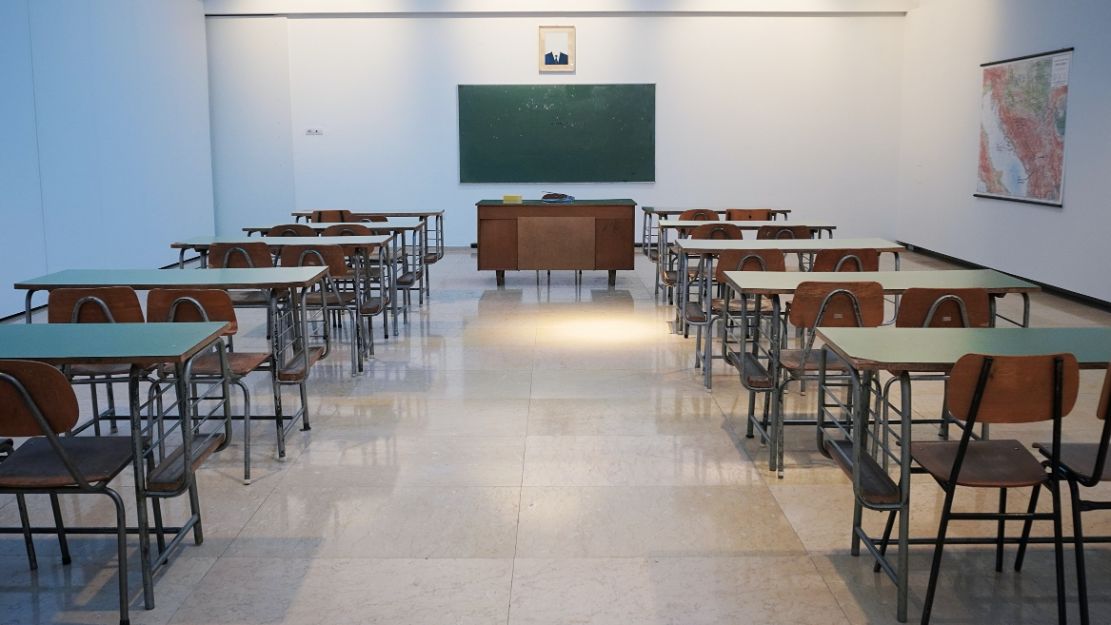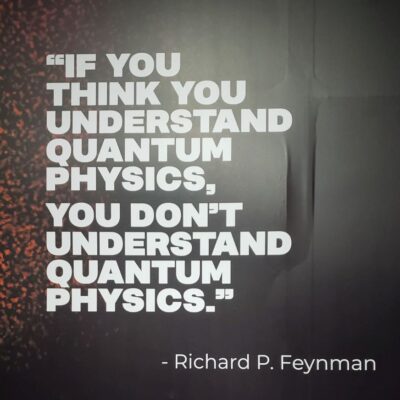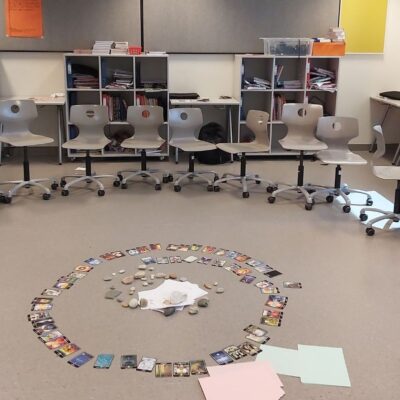It was many years ago now and I have forgotten the names of those involved. However, the experience they gave me was so profound that I still carry it very vividly in me. In colour and in the total orchestration of my feelings at the time. It was my very first big challenge. Since then, however, I know that I can rely on myself. Always. Come what may.
You may forgive me if you recognize yourself in this story. I promise I won’t tell anyone that you were involved. I realize how awkward, indeed embarrassing, that would be for you. No, honestly, you can count on me. I’m only telling this story because it was a trial by fire for me and saved me from making many mistakes later.

The overture
“Are you free on August 5 and 6? A friend of mine has planned an Open Space conference and can’t lead it herself because her husband, a university professor, is the client and that wouldn’t make a good impression.”
A call from a colleague … and I said “yes”.
I have sometimes wondered if I should have followed my first impulse, “Don’t do it. Hands off” should have been followed. But I would have missed an unforgettable life experience – painful and instructive. I guess it was my intuition that told me to say ‘yes’. My intuition is actually smarter than ME, or better: my mind.
Even then, it was clear to me that the quality of a conference, the richness of the experience for the participants and the outcome of results were highly dependent on the quality of the preparation. I was super picky about this and had already gotten on the nerves of many clients because of my uncompromising approach. Detailed research of the initial situation and the desired results, detailed identification of the needs and expectations of the participants, in-depth exploration of the climate between participants and clients, and careful selection of the conference venue were just some of the preparations in which I was downright pedantic. Just as I had learned in my GC training. I was able to cope with the resentment and impatience of some of the clients, knowing that they would thank me in the end. Besides, I love to be successful, and I don’t risk any carelessness that would result in mediocre results.
Previously
And so, I asked the professor’s wife “What do you want to talk about, what is the topic and how did you prepare for the conference?”
There were still a few weeks to go before the conference, so possibly time to do some touching up. But the professor’s wife was convinced she had done everything right, so she just named the topic and said, “I just need you to facilitate. The preparations are done and if you have time on August 5 and 6, it would be nice if you would do it for me.”
The topic was very vaguely worded. I had the impression that she had never consulted potential participants in preparation. Nor did she get any more detailed information about the expectations of the target audience or the conference room.
I asked her further questions that I consider crucial for the preparation of a large group – but again and again, I only got the answer “No, no, don’t worry about that. Everything is well prepared. The participants are already looking forward to it and can hardly wait. The room is perfect. All you have to do is come, prepare the room and facilitate.”
My queasy feeling increased. There was nothing I could do, and I had no idea what to expect.
All too late
When I entered the room where the Open Space Conference was to take place on the morning of August 5, I was already jolted by the first shock: no windows, black-painted walls – a small cinema hall that was far too small for the 50 participants.
The conference was to start after lunch. Everything in me was in a panic. How could I create an open, friendly, welcoming atmosphere in this room where participants would be inspired and produce amazing results?
I was about to just leave because I could clearly sense what this room would ‘do’ to the participants. It was oppressive and took away the air to breathe. I was all alone, as the professor, his wife and the participants had been at a museum that morning and would not be back until lunch. I wrestled with myself…but my ‘helper syndrome’ took over. (By the way, I have since shed that ‘thank me’ not least because of this story).
As best I could, I arranged the main room so that everyone could sit in a circle and there was still reasonably enough room to move between the two concentric circles of chairs. This made the inner circle from which I was to facilitate tiny. The professor’s wife’s ikebana floral arrangement in the center of the circle also took up so much space that I had to limit myself to minimal space for walking around the circle for the introduction. Anything but perfect, because I also need free space in my introduction – otherwise I can’t be completely in the here and now.
The workshop rooms for the working groups were eternally far away from the main room, but at least they were brighter and friendlier. I worked completely alone for the morning – which was not agreed upon – and made it to lunch just in time to prepare all the work areas and put up signposts to all the workrooms. Before lunch, I tried to regain my balance by doing a few exercises myself, and then I went to the room where all the participants were now seated for the lunch buffet, reasonably calm and confident.
My confidence faded when I experienced the next shock here: beer and wine were flowing in streams – and that at 1 p.m. I had asked that no alcohol be served at lunch. Especially in the initial phase of an Open Space conference, it makes a crucial difference whether the participants are wide awake and alert or tired and fogged by alcohol. In such a state, certain new, startling connections that are revealed in an Open Space conference cannot, as experience has shown, be properly processed at all.
There was nothing I could do, and I tried my best to stay positive and confident.
Whatever happens… It is the only thing that could have…
After only a few words of welcome from the professor, I began my introductory remarks. I had asked him to explain who I was and why I was invited by him. “Experienced facilitator … particularly successful method … I am pleased that I could win Ms. Bredemeyer for this facilitation”. Ok, that had worked.
In an Open Space conference, my introduction takes about 15 – 20 minutes. In it, the topic, the sequence of events and the most important ‘rules of the game’ for the duration of the conference are mentioned, which make it easier for the participants to experience their conference with maximum personal freedom, inspired and highly productive. I had also conducted several successful Open Space conferences at that time and therefore knew that the participants listened to me attentively and that you could have heard a pin drop.
Not so in this facilitation.
I had barely spoken for 2 minutes, little more than the welcome when I heard a man in the inner circle whispering loudly so that everyone could hear – saying “How long do we have to listen to this. We want to do our own work here, not listen to a presenter.”
I didn’t have much time to think about whether to respond or keep talking, because just 5 seconds later, the same man said in an even louder whisper, “Well, I don’t need that right now. I finally want to start working”.
Two voices were fighting inside me. One “Pretend you didn’t hear it and just move on” – the other “Something’s wrong here – what can I do or say?” – so I decided to put myself in this man’s shoes to understand and then heard myself say, completely calmly and kindly, “This introduction will be about 12 minutes. After that, you will have 2 days all to yourself. With this introduction, I would like to give you suggestions on how you can use the next 2 days in the best possible, creative and productive way. I will show you a few principles that will facilitate your collaboration and enable you to work with the collective intelligence of the group. But if you want, feel free to step outside during the introductory period. Your colleagues will be sure to fill you in and you will understand, even without being there, how to make the best use of their time here. After my introductory presentation, you will have all the time and space to yourself.”
The man, who was about 45 years old, looked at me out of alcohol-fogged eyes, twisted his mouth like an offended child, folded his arms and leaned back in his chair. Emphatically bored, he looked in another direction.
My heart was pounding in my throat … I took a few deep breaths, looked around the circle one more time, and decided to continue my introductions. I walked through the constricted little circle – had to be careful not to step on the feet of the participants, nor to damage or trip over the much too large ikebana arrangement of the professor’s wife. In this balancing act, I looked as many participants as possible in the eyes. And felt that there was something very unpredictable brewing.
Infected by the impatient participant who was now sliding back and forth on his chair and making sounds of displeasure that could be heard from all sides, more and more participants began to get restless. No one was really listening anymore. Some started whispering to their neighbour. The whispering became louder and louder. Many had their eyes not on me but somehow turned inward and seemed to be busy evaluating the situation and taking either one side or the other. Pro moderation – that is, listening – or contra. Some were probably just embarrassed by the situation because they were simply ashamed of their colleagues’ disrespect towards me. I realized that the content of my presentation was completely irrelevant and no longer got through to the participants. It was pointless to continue.
I had never experienced a situation like this before. So far, all my participants had listened completely attentively, especially in these first minutes of an Open Space conference. Panic rose in me. Fear …
I was completely tense. But at that very moment, an important principle of the Open Space Conference emerged in my consciousness: “Whatever happens is the only thing that could have”.
Immediately I became very calm, highly attentive to what was going on out there.
All of this happened in a split second.
I looked over at the professor and his wife – thought, ‘actually, now it would be his turn to say something’. Something like ‘ladies and gentlemen, I ask you to give Mrs. Bredemeyer the opportunity to give us the very meaningful suggestions for a very effective way of working together …. ‘ or something like that. But what I saw there was equally distressing. The professor was sitting there, helplessly looking at the floor in front of him, arms folded … the professor’s wife was sitting on the edge of the chair, eyes wide open, worry lines on her forehead, panic. No support was to be expected from this direction.
Okay, very calmly and attentively I felt into the situation, the atmosphere, the energy that was here in the room … when suddenly the professor’s wife jumped up, virtually snatched the microphone out of my hand and began to speak: Not that she responded to the commotion in the room or included the participants understandingly in what she was now saying. No, she simply continued to facilitate. With her voice drowning out everything and shrill emphasis she continued to explain the principles and procedures of the conference.
While the situation was coming to a head, because the participants were getting more and more restless and louder, I quietly sat down in my chair. I looked at the professor, his completely distraught wife and the participants, dumbfounded that still nothing came from the professor as the sponsor of this conference.
When the noise increased after a minute to loud shouts of protest, I still waited perfectly calmly for something saving to happen. Suddenly I felt an impulse that I just trusted, not knowing what I would say next or what would happen. Quite calmly, I stood up, approached the professor’s wife, asked her to give me the mic. After an initial surprise and a short hesitation, she gave it to me. She looked at me, perplexed and disturbed, but I also felt her relief. And then I calmly said, “Ladies and gentlemen …” nothing more, and waited with a composure that amazed me until the volume died down.
One by one, the participants stopped shouting or talking to their neighbours and it became very quiet. When no one spoke anymore, I said “Ladies and gentlemen, why don’t we follow the suggestion of the lady in the 2nd row and take a 15-minute break. And when you come back, you will vote for yourselves whether you want to work with this method in the next 2 days or not. Please take a break. Then in 15 minutes, we will ask you to come back to this room”.
I could physically feel the participants’ sigh of relief at this moment. The tension in the room instantly eased and the participants streamed out of the room.
Damage control
I asked the professor and his wife to follow me outside and we found a quiet place in the garden of the facility. Now it was a matter of providing the best possible to the participants in this situation. “Maximum freedom -maximum choice” is one of the basic principles of the Open Space Conference.
The behaviour of the participants was the obvious expression that the participants did not feel comfortable and that something was very wrong here.
Sure, the room was dark and not inviting – but it couldn’t be the only problem. The participants didn’t feel comfortable, seemed to be acting confined, or patronized. And I KNEW it wasn’t me.
We now had only 15 minutes and I knew that the participants would decide against the Open Space Conference. In order not to let the professor and his wife completely lose face, they now had to come up with a design that allowed them to involve and let the 50 or so participants contribute for 2 days in such a way that they could go home at the end with the good feeling that it had been worthwhile and that the 2 days had produced good results.
When we found a quiet place in the garden to talk, I immediately interrupted the desperate attempts of the two completely overwhelmed hosts to explain. There was no time for that now. Until today I do not know where I got the calmness and the knowledge at that moment – because under my outer calmness I was inwardly agitated and my heart was beating up to my neck. Within 10 minutes I explained what would probably happen next and what they could do afterwards to still save the conference. In all that I came up with in that short time, I was guided by the basic principle of “maximum freedom, maximum choice” – the two conditions for people to feel comfortable and work creatively. The most important thing was to give them a choice: Voting for or against the Open Space method. Then: giving them the freedom to choose their own working method from a selection they could filter themselves.
In these 10 minutes, I proposed 3 different ways to continue the conference. I can only explain this creativity – still unbelievable for me, by the way – by my completely free intuition. All three suggestions were variations of the Open Space Conference. None of them as effective as the original – that was clear to me – but all of them in such a way that they could not be directly compared with what I had presented before. Because that would only meet with rejection.
What was also perfectly clear to me: it was not I, but the professors’ wife who would have to do this moderating. Because I was ‘burned’ as a projection surface, so to speak. The participants identified me with the oppressive situation before the break – the professor’s wife had also appeared in this situation and had not contributed anything positive, but since she was the wife of the client, we could have her appear after the break as a ‘saving angel’, so to speak. At least that’s how the possible ‘rescue’ of this situation seemed to me.
When everyone had gathered in the room again, I stayed – as agreed – outside the circle for the time being. The professor led the voting. The result was as expected: about 70% of the participants voted against Open Space facilitation and I went back into the circle.
The professor gave me the microphone as agreed to say goodbye and to wish the participants another successful conference. To disappear without a sound seemed to me and to the two hosts to be completely inappropriate.
Whatever happens…
I had hardly spoken the first words when a man with a flushed head and clearly protruding carotid arteries jumped up from his seat and stormed at me: “Get out of here. Haven’t you got it yet: we don’t want you here?” he shouted at me. Both arms raised as if he was about to hit me, he stopped just a few centimeters in front of me. His alcoholic breath hit me in the face, and I saw him clench his raised hands into fists. I was frightened, my diaphragm tightened. I just stopped and looked him calmly in the eye. “Keep breathing evenly,” I told myself, feeling the participants holding their breath. As if there was an invisible glass wall between me and the participant, I didn’t get any of his violent threatening gestures … he stood in front of me as if pinned down and couldn’t reach me. I just waited until he let go of me after a few more insulting words … I turned back to the participants and looked into wide open eyes and saw open mouths. With a calmness that was foreign to me, I continued with what I had been interrupted in. I finished the sentence and said goodbye with the words, “and now I hand over the microphone and wish you two successful days” and left the circle.
Healing pain
It was not until I was in the car that the effects of the tension burst out of me. Tears were running down my face like a waterfall – and at the same time, I was proud of myself for having apparently saved the difficult situation.
Three days later came the call from the professor’s wife. “Dear Mrs. Bredemeyer. We are so sorry for what you had to experience. We are both very grateful to you for the way you reacted and what you delivered to us in the situation. You were right: I should have been more specific in my preparation. I was not even aware that the participants came to the conference with great reservations. They had a lot of resistance to the topic – I honestly didn’t even discuss it with the participants. They felt forced into the topic by my husband and feared being called out with it, so to speak, so that he could do his own thing with the results. Everything you had to put up with was actually directed against my husband. But thanks to your tips, we still managed to work well together for the two days. It wasn’t as successful as it could have been if you had been able to lead the Open Space. But the most important thing at that moment was to win back the participants and we succeeded thanks to your calmness and your good interventions. Thank you very much. Of course, you will get your money”.
Exam passed
It took a few more days before I recovered from this situation. The emotional, physical, psychological, and intuitive processes that had been going on inside me during those 6 hours or so had put an enormous strain on my entire system. And so, I fell into my usual dejection – as I do every time after a large group process. After this experience, it took me longer than usual to regain my balance. But as always, I succeeded, and I also knew that I could be proud and that I had learned a lot.
Since that experience, I have never again led or facilitated a conference or even a workshop that I had not prepared myself. I have become even more precise in my preparation; I look and feel carefully. More clearly than ever before I have felt the effects of poor preparation here. Even though I am very grateful for this experience, I don’t have to experience it again.
And I had passed my maturity test. I knew nothing more could happen to me. I was ‘ripe’ for unpredictable situations that need to be handled flexibly, out of the moment, intuitively and with the help of creative solutions. Well, and if I once again have the feeling that I want to run away, I know today: there is something coming at me…
Photo by Ivan Aleksic on Unsplash









Elisabeth
Dear Sabine,
You’ve just described my worst nightmare, and it happened to you! OMG!
Thank you so much for sharing this with us. Your experience, and your attitude is an example to us all.
You are brave, and I’ll always see you as a warrior dragon.
With love and gratitude,
Elisabeth
Sabine Bredemeyer
Thank you, Elisabeth 🙂
Yes, it was a nightmare AND a HUGE learning. Since than I never ever let others any conferences or workshops that I facilitate. Because you and I – we know, that the preparation of any workshop or conference is the most important part of it. If the preparation is done with our great tools, our experience and intuition, the event itself gets a big success – always 🙂
Trusting our great GC-tools and our intuition 🙂 makes the difference …